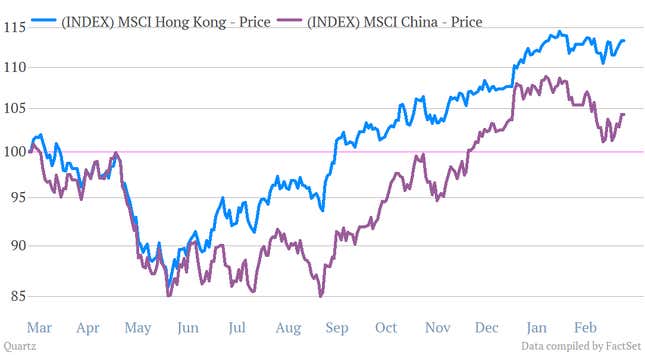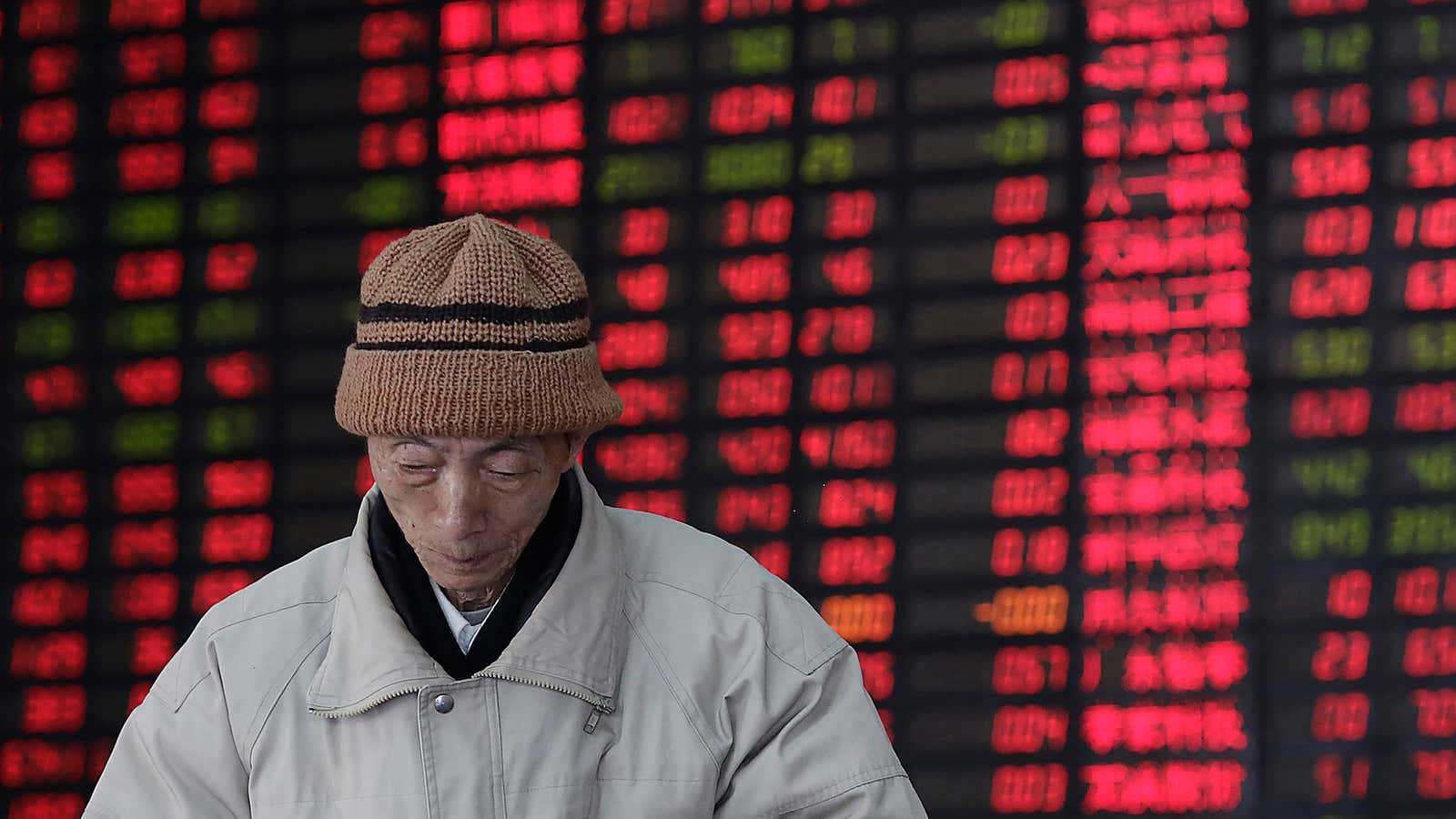In theory, Shanghai and Hong Kong bourses should move more or less in sync. Hong Kong’s stock market is dominated by mainland Chinese companies, so events like rises and falls in China’s GDP ought to have similar effects on both bourses. But they have entirely separate groups of investors. Mainland Chinese funds and individuals are restricted to buying stocks at home, using the tightly controlled renminbi. Hong Kong’s market is for the territory’s locals and international money managers.
This chart shows the performance of the Hong Kong versus Shanghai markets over the last 12 months. Sentiment in Shanghai has drooped recently while Hong Kong seems more sanguine.

Why the difference? It could be that mainland Chinese investors are more pessimistic because they see what’s happening inside China’s borders more than Hong Kong residents or overseas fund managers. Data showed a broad decline in a wide range of economic indicators in China in February.
Alternatively, the gap could be due to big differences in liquidity in both markets. The Hong Kong currency is pegged to the US dollar, which means Hong Kong has effectively imported (paywall) America’s rock bottom interest rates, making liquidity abundant (paywall). In China, by contrast, the central bank is fighting a lending bubble, which caused a large reduction in credit in February. So it has become harder for Chinese retail investors or companies to borrow cash to bet on stocks.
Whatever the reason, the result is that some companies on the Shanghai stock exchange are trading at a sizable discount to their price in Hong Kong. Here are a few large companies this has happened to, with the Chinese yuan price of the Shanghai-traded security converted into Hong Kong dollars for easier reading:
“You do sometimes get these great opportunities to buy good Chinese companies at a reduced price in Shanghai,” says Charlie Awdry, manager of London based Henderson Global Investors’ China Opportunities Fund. “Still, you have to ask yourself if you are certain whether negative sentiment among local Chinese investors is going to change.”
But unlike Awdry, retail investors cannot go fishing for bargains in Shanghai. Only foreign fund managers approved under the Chinese government’s “qualified foreign institutional investor scheme” can buy individual Shanghai shares. Their total ownership of Chinese stocks is tiny, at just 1.3% (paywall) of the market.




